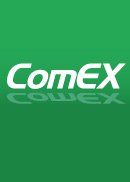All issues

Volume 5, Issue 5
Displaying 1-5 of 5 articles from this issue
- |<
- <
- 1
- >
- >|
-
Kotaro Matsuoka, Yasutomo Yushima, Ryo Hayakawa, Riho Kawasaki, Kazuno ...Article type: LETTER
2016 Volume 5 Issue 5 Pages 118-123
Published: 2016
Released on J-STAGE: May 01, 2016
Advance online publication: February 22, 2016JOURNAL FREE ACCESSThis paper proposes a tag identification protocol built upon Boolean compressed sensing (CS) for radio frequency identification (RFID) systems. Unlike the conventional CS-based tag identification (CS-ID) protocol, the proposed protocol can cope with flat fading channels without explicit channel estimation. Simulation results show that the proposed scheme requires less amount of bits for successful identification than dynamic framed slotted ALOHA (DFSA) protocol, and that it even outperforms the conventional CS-ID protocol with perfect channel information.View full abstractDownload PDF (669K) -
Tetsuki Taniguchi, Yoshio Karasawa, Nobuo NakajimaArticle type: LETTER
2016 Volume 5 Issue 5 Pages 124-128
Published: 2016
Released on J-STAGE: May 01, 2016
Advance online publication: February 22, 2016JOURNAL FREE ACCESSThis paper presents performance analysis of multiuser MIMO system based on the idea of zero forcing (ZF). Several modified ZF approaches are considered, which attempt to enlarge interference cancellation area from a pinpoint to an interval of certain width by using time variant weights or applying the strategies which have been adopted in classical array antennas. Through computer simulations, their effect to improve the SINR degradation and problem to be solved are shown.View full abstractDownload PDF (438K) -
Yusuke Ito, Hiroyuki Koga, Katsuyoshi IidaArticle type: LETTER
2016 Volume 5 Issue 5 Pages 129-134
Published: 2016
Released on J-STAGE: May 01, 2016
Advance online publication: February 24, 2016JOURNAL FREE ACCESSIn cloud computing, users can now enjoy various Internet services provided by data centers (DCs) through a wide variety of access networks and communication terminals anytime, anywhere. However, the problem arises that a user’s quality of service is unfair among users who are different distances from DCs. Therefore, we propose a fair bandwidth allocation scheme based on collectable information in DC networks. This scheme collects flow information from routers and servers in DC networks, and then fairly allocates transmission rates among flows based on the collected information. We show the effectiveness of this approach through simulation evaluations.View full abstractDownload PDF (846K) -
Akihito Noda, Akimasa Okada, Hiroyuki ShinodaArticle type: LETTER
2016 Volume 5 Issue 5 Pages 135-141
Published: 2016
Released on J-STAGE: May 01, 2016
Advance online publication: February 29, 2016JOURNAL FREE ACCESSTwo-dimensional communication (2DC) is a wireless communication system using a waveguide sheet as a radio frequency (RF) signal transmission medium. This paper proposes a theoretical analysis model of RF radiation from a 2DC sheet surface. Previous works supposed that only a non-radiative guided mode propagates along a 2DC sheet and that radiation is due only to open ends of the sheet or to impedance discontinuities around the sheet edges. The proposed model based on field equivalence principle clarifies that the sheet guided mode propagating in a finite-size sheet inherently generates radiation fields even if no edge radiation nor impedance discontinuity are involved.View full abstractDownload PDF (544K) -
Shinya Ito, Mitoshi Fujimoto, Toshikazu Hori, Tomohisa Harada, Yoshiyu ...Article type: LETTER
2016 Volume 5 Issue 5 Pages 142-146
Published: 2016
Released on J-STAGE: May 01, 2016
Advance online publication: March 04, 2016JOURNAL FREE ACCESSIn recent years, an interference of artificial noises from an electrical power transfer becomes large and deterioration of a sound quality of an AM radio is worried. In this paper, a novel noise suppression system using quadrature demodulation techniques is proposed to reduce the effect of the interference. The proposed system utilizes the fact that the in-phase signal from the demodulator includes both of the AM signal and the noise, on the other hand, the quadrature signal includes only the noise. Thus, the interference in the in-phase signal can be canceled by using the quadrature signal. Since the sign of the both interferences are different each other, Hilbert transformation is utilized to match the sign of the interferences. Validity of the proposed system is shown through computer simulation and experiments.View full abstractDownload PDF (627K)
- |<
- <
- 1
- >
- >|